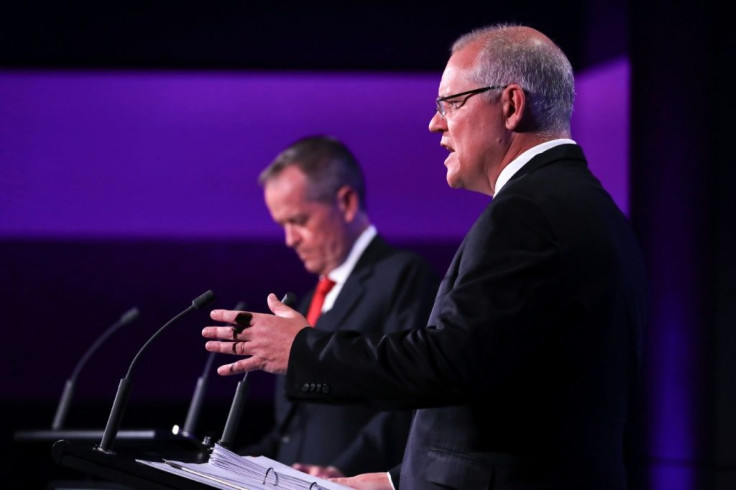Australian Election Polling 'Failure' Sparks Reform Calls
Polls that misjudged the outcome of Australia's 2019 election were likely caused by surveys overrepresenting educated voters, an industry inquiry reported Wednesday, a finding that could resonate with beleaguered pollsters worldwide.
They had strongly tipped centre-left Labor to win last year's Australian general election, but conservatives pulled off what Prime Minister Scott Morrison declared a "miracle" win.
The Australian election was "a 'polling failure' not just a 'polling miss'" and future reforms are necessary, according to an expert panel created days after the 2019 vote by the Association of Market and Social Research Organisations.
The shock defeat of then-Labor leader Bill Shorten echoed polling errors in Britain and the United States in recent years -- when support for the Conservatives, Brexit and Donald Trump was underestimated.
In this year's US presidential election, pollsters again substantially misjudged Trump's share of the vote in what became a neck-and-neck race eventually won by challenger Joe Biden.
It led many to question whether polls are still a useful barometer of the public mood.
After an 18-month review, the Australian panel called for a series of changes to the industry, including a code of conduct for election pollsters, more scrutiny of sampling models and more transparency in presenting data.

The report also discounted theories that the pollsters erred because of a last-minute rightward shift among voters, or because of so-called "shy conservatives" who mislead interviewers about their voting intention.
Instead, the 125-page report said the most likely reason for the error was that polling was "skewed towards the more politically engaged and better educated voters".
The theory is that more enthusiastic and more educated voters will more readily offer their views. Young men in particular are less likely to respond to questions.
"With this bias not corrected," the report said, "the polls over-represented Labor voters."
Pollsters say the problem is not insurmountable, but neither is it easy to solve.
US public opinion organisation Pew is among those who previously reported that better-educated voters tend to have more time and more inclination to do surveys.
Campbell White, YouGov's head of research and polling in the Asia-Pacific and chair of the Australian Polling Council, told AFP the sector looked forward to "studying and considering the contents of the report".
He added that Australian pollsters are "currently developing a set of guidelines and a code of conduct for public opinion research in Australia."
© Copyright AFP 2024. All rights reserved.





















